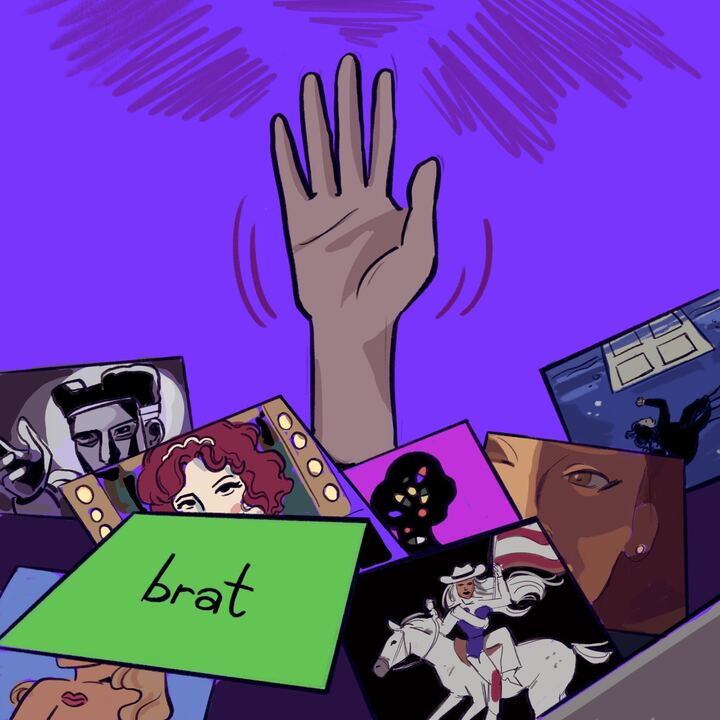The news that President Barack Obama plans to vastly expand the war in Afghanistan can’t have come as a surprise to many. There was never much of a chance that Obama — who always claimed only to oppose “”dumb wars,”” who defended the Afghanistan occupation as a “”necessary war,”” and who has surrounded himself with war hawks like Defense Secretary Robert Gates — was going to do the sensible thing and pull us out of an unwinnable, needless occupation.
That said, Obama probably made the best possible case for staying in Afghanistan in Tuesday night’s speech, when he announced his plan to send 30,000 more troops there. He didn’t try to defend the war as a noble, Wilsonian quest to liberate a downtrodden people. Instead, he made it clear that we’re there “”to disrupt, dismantle and defeat al-Qaeda.”” Derailing al-Qaeda’s plots against America, Obama argued — as he has so many times before — is why the Afghanistan occupation is “”necessary.””
But is that true? Yesterday, ABCNews.com reported that U.S. intelligence believes there are no more than 100 al-Qaeda left in Afghanistan. We’re sending 30,000 more troops to fight 100 men?
If ABC News isn’t a sufficiently credible source for you, here’s what Gen. Stanley McChrystal himself said in September: “”I do not see indications of a large al-Qaeda presence in Afghanistan now.””
Despite Obama’s claims, we’re in Afghanistan to fight the Taliban, not al-Qaeda. The Taliban are undoubtedly not very nice guys, but fighting them places us in the position of defending a corrupt government, supported by some Afghans, against a corrupt political faction supported by other Afghans. In short, it’s the same rotten policy we pursued in Vietnam 40 years ago.
“”If left unchecked,”” Obama declared, “”the Taliban insurgency will mean an even larger safe haven from which al-Qaeda would plot to kill more Americans.”” A “”safe haven”” — where have we heard that before? “”Failure in Iraq,”” said President Bush in 2007, would mean that “”our enemies would have a safe haven from which to plan and launch attacks on the American people.””
Wipe away the veneer of professionalism — the air of credibility, of unforced decency, of sensible moderation — that Obama brings to everything he says in public, and what you’re left with is nothing more than the same, horribly flawed policy that the Bush administration clung to for eight years.
The “”safe haven”” mentality — the idea that potential threats were as dangerous as real ones — was precisely how Bush and Cheney sold the Iraq War to an uncertain country. Here’s how Bush put it back in 2002: “”If we wait for threats to fully materialize, we will have waited too long.””
One war later, most Americans are fed up with that sort of talk. A Gallup poll last week found that 48 percent of Americans opposed a troop increase or wanted a troop reduction. Their wisdom goes unheeded by their president.
This was undoubtedly a painful decision for Obama, who’s stalled on the Afghanistan question for months. But he brought it on himself by insisting that the Afghanistan war was a “”necessary”” one, and failing to adjust his rhetoric even when it became obvious — as it must, even to him — that it is no longer the same war it was in 2001.
What do the Afghans themselves think of this decision? “”We welcome their arrival if they really expel the Taliban, terrorists, and al-Qaeda from the borders of Afghanistan,”” Mohammad Zia, a 40-year-old resident of Kabul, told CNN before Obama’s speech. “”But if they come and kill more civilians and destroy villages, then they shouldn’t come.””
It’s hard to imagine a more succinct indictment of the Afghanistan war. The United States may eventually expel the Taliban from Afghanistan. But it will certainly kill civilians. And the longer it stays, the more our presence (already resented) will be detested. That is the true “”safe haven”” for al-Qaeda, and it’s a shame our sensible, decent, imminently well-spoken president doesn’t have the guts to admit that.
— Justyn Dillingham is the arts and features editor of the Daily Wildcat. He can be reached at arts@wildcat.arizona.edu.








